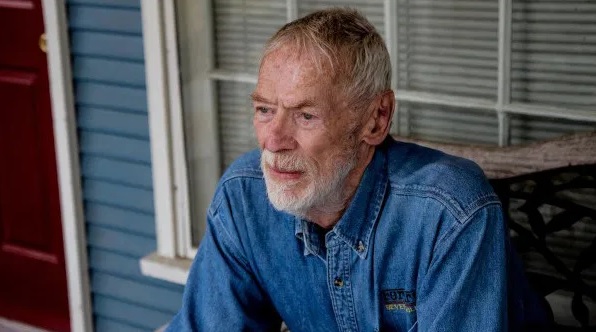(RNS) — Ole Anthony, a small-church pastor and activist who spent years investigating the lifestyles of rich and famous televangelists such as Robert Tilton, Benny Hinn and Jan and Paul Crouch, died Friday (April 16) at the age of 82.
Anthony, who was diagnosed with cancer in 2017, was the longtime president of the Dallas-based Trinity Foundation Inc., a nonprofit that helped the homeless, ran a radio show, held Bible studies and eventually spent years investigating televangelists.
He was an advocate of “full contact Christianity,” a form of the faith that, he explained, went beyond church “niceness” and focused on a high level of commitment to following the teachings of Jesus. The foundation was named in the 1970s after the Trinity nuclear test site in New Mexico, and hoped to set off an “explosion of faith.”
“Anthony appeared more like an Old Testament prophet than a modern preacher,” according to an obituary posted on the Trinity Foundation website. “He could most often be found sitting on his back porch, swathed in tobacco smoke from his ubiquitous pipe.”
Anthony came to fame in the early 1990s, after the Trinity Foundation’s investigation of Tilton’s direct mail operation was featured on ABC’s “Primetime Live” broadcast. During the investigation, Anthony visited a Tulsa, Oklahoma, direct mail firm that had helped Tilton raise millions. The firm’s president offered to help Anthony do the same, according to the Tulsa World at the time.
RELATED: Why I used to believe in the prosperity gospel
The Trinity Foundation also claimed Tilton’s direct mail operation kept the checks from donors but threw their prayer requests in the trash — a claim the ministry disputed. Anthony also appeared on the program, lambasting Tilton as someone who misused religion for profit.
“It was awesome,” Anthony told the Dallas Observer in 2006. “The one aspect of the program that everybody remembers is when Tilton crossed over the sleaze line. They remember the prayer requests in the trash. A producer at ABC told me it was the No. 1 topic on talk radio for weeks.”
Anthony would spend three decades investigating televangelists and even ended up advising a U.S. Senate committee that looked into the finances of high-profile televangelists. His followers would climb through dumpsters, comb mountains of documents and interview whistleblowers in a relentless crusade against what Anthony saw as religious fraud. For a time, the Trinity Foundation also ran The Door, a satirical Christian magazine.
Anthony and the Trinity Foundation also spent years investigating the Crouches, whose long tenure at the helm of the Trinity Broadcasting Network was filled with controversy over their wealth.
“Paul Crouch at TBN is the greatest proponent of the oldest heresy in the church — that gain is godliness,” Anthony said in 2013. “All of the heresy connected with that position is what they’re based on and the problem is they’ve spread that all over the world.”
RELATED: Paul Crouch, TBN founder, dead at age 79
His hard-charging style made enemies, among both the televangelists he hounded and some of his own followers. A number of former members claimed the Trinity Foundation was a “cult of personality” dominated by Anthony.
“Some former members blame Trinity for the breakup of marriages. Several members, they say, have had nervous breakdowns,” the Observer reported in 2006 in a feature titled “The Cult of Ole,” which also reported three members of his team killed themselves.
“Many of the men and women attracted to Trinity are people who’ve come to the end of their abilities and want to throw everything at the feet of God,” the paper said.
The Trinity Foundation’s own tribute to Anthony described him as having an “often confrontational and abrasive style,” and noted some group members had left because of accusations of “cult-like tactics.”
“Most disagreed and remained, however, and the community he founded survived and evolved,” the tribute went on to state.
An Air Force veteran who was born in Minnesota but was raised in Arizona, Anthony spent several years monitoring nuclear tests while in the service and then went to work for Teledyne Inc., a technology conglomerate, before going to work as a political consultant and running a public relations firm.
In the early 1970s, Anthony, who was raised Lutheran but had fallen away from the church, had a dramatic conversion experience after going to see a former missionary named Norman Grubb talk about the crucifixion of Jesus.
The Trinity Foundation started out as an evangelistic group, hosting Christian concerts and running a radio show where Anthony interviewed celebrities, including Roger Staubach, Billy Graham and even Frank Sinatra, according to the group.
He grew tired of ordinary churches and started a new congregation, a “rag-tag collection of struggling blue collar workers and recovering drug addicts” as well as some students and business professionals. The group’s approach was focused on Jesus’ call for his followers to take up their crosses and follow him.
In 2010, the church, now known as the Community on Columbia, and the Trinity Foundation split ways but remained on friendly terms.
A memorial service will be held in Dallas on May 1.





